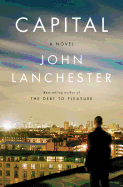
Set during the financial implosion of 2008, John Lanchester's (The Debt to Pleasure) Capital uses an omniscient perspective and very short chapters to dip into the lives of an array of residents and workers along Pepys Road, a fictional street in a comfortable South London neighborhood. Into this multi-racial, multi-class study, Lanchester inserts an Iris Murdochesque plot twist, as each home owner is targeted by postcard photos bearing the typed message, "We Want What You Have."
The astute narration, touching on everything from the vodka preferences of Polish house painters to the grassroots politics of detention centers to the clauses in soccer phenom contracts, lends a reassuring air of novel verité. Lanchester cleverly uses the poison-pen postcards to explore the issues of personal expression and police surveillance in times of resentment and paranoia; the resolution exploits more than one skein of the narrative and contains a credible nod toward a real-world individual.
The chief bonus of reading Capital is gaining Lanchester's insight into the diverse ways in which modern Londoners strive to cope with property value insanity, unpredictable employment and evolving multiculturalism (it's a credible Baedeker of current British society). The novel dramatizes the personal side of the high-finance folly Lanchester explained so well in his nonfiction book I.O.U.: Why Everyone Owes Everyone and No One Can Pay (2010). As Capital both shows and tells, life in London in the early 21st century is a far broader and more complex picture than bowler hats, brollies and Burberry macs. --Holloway McCandless

